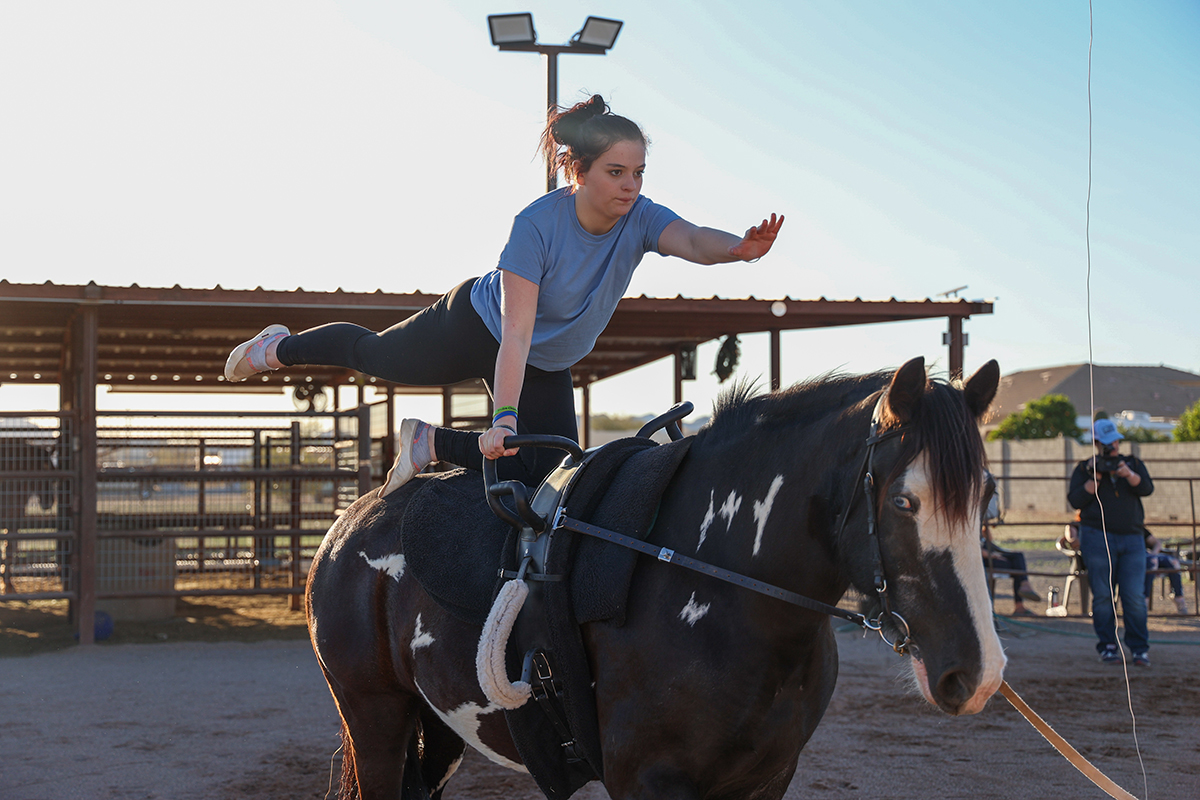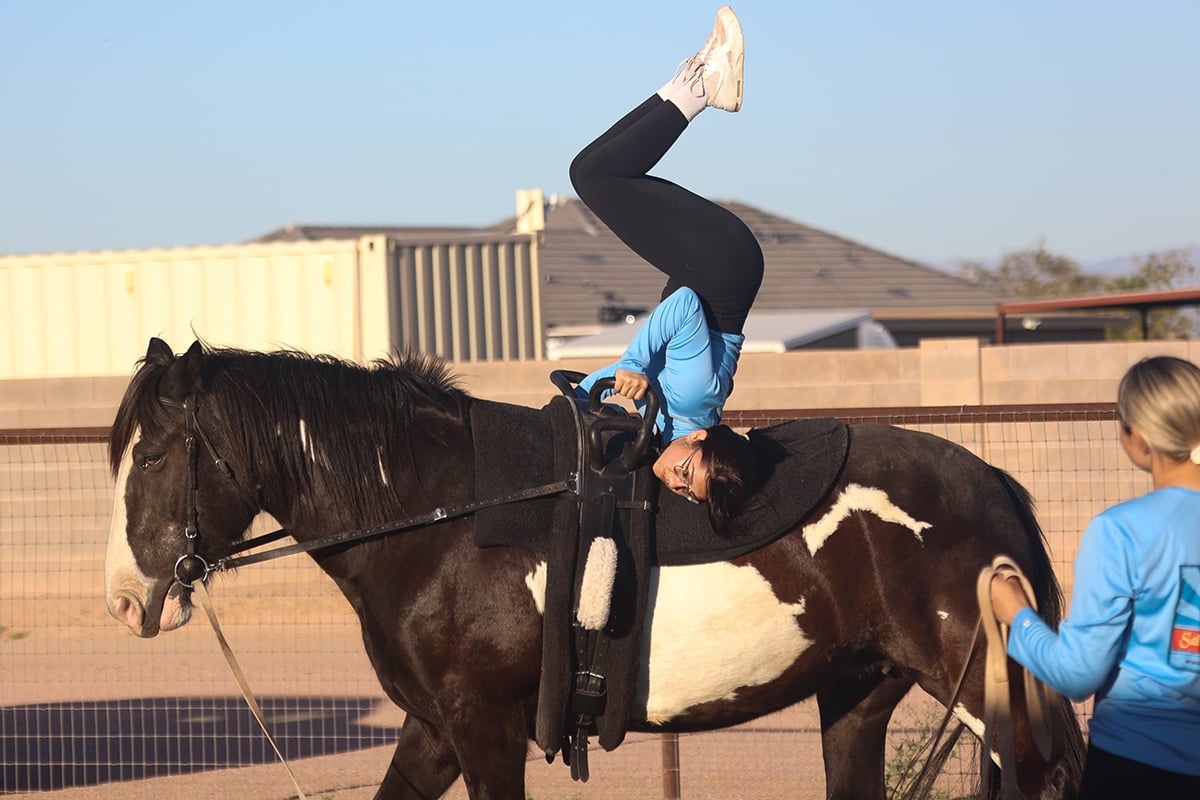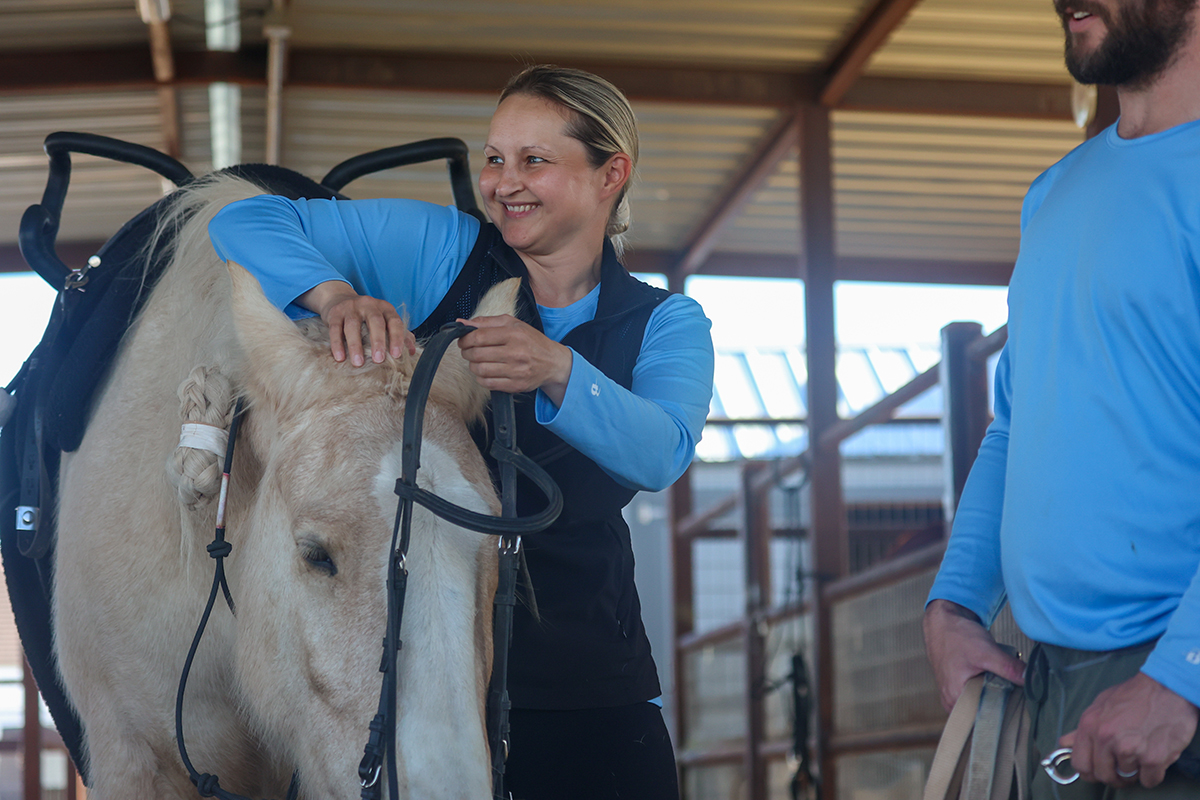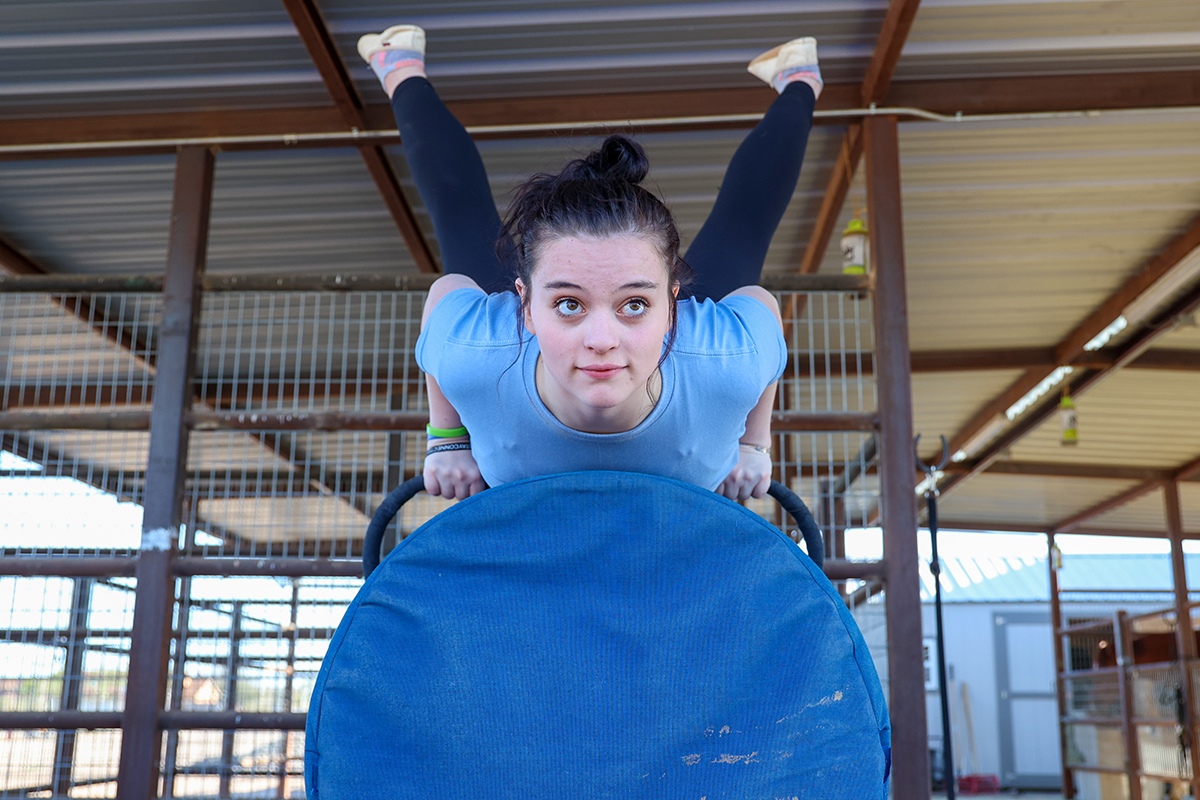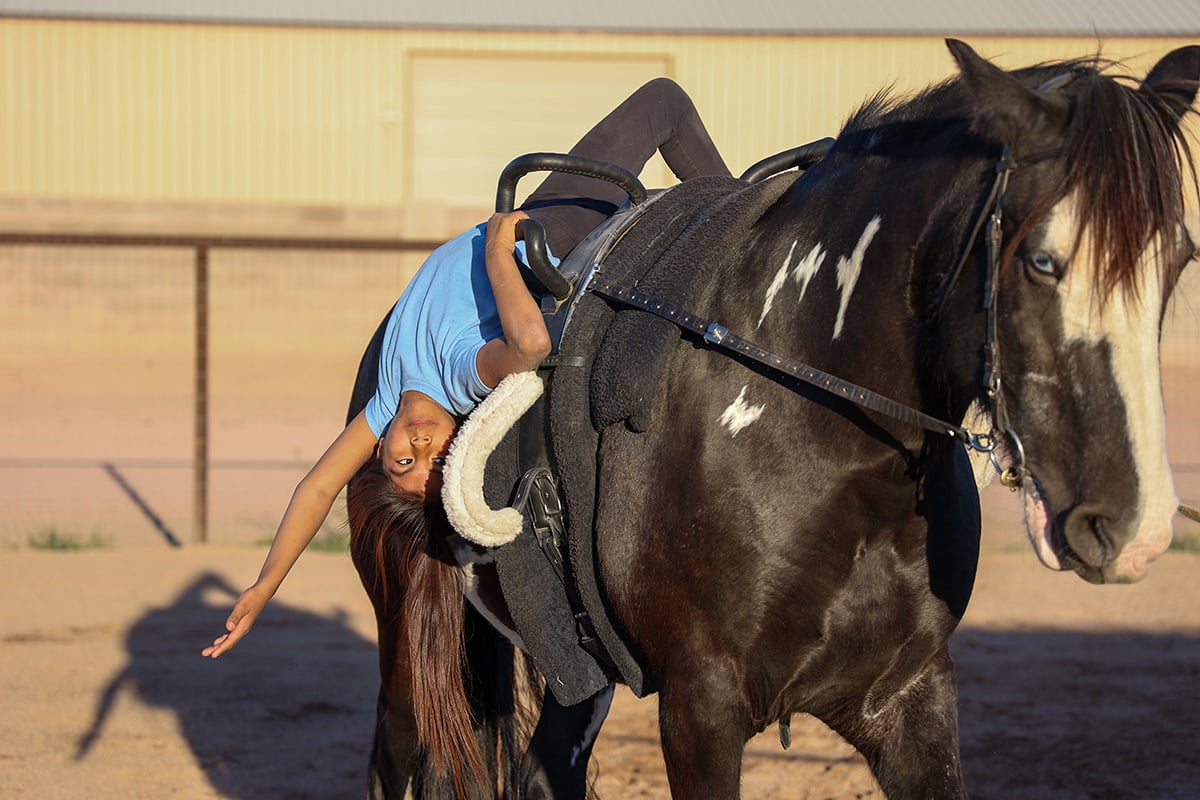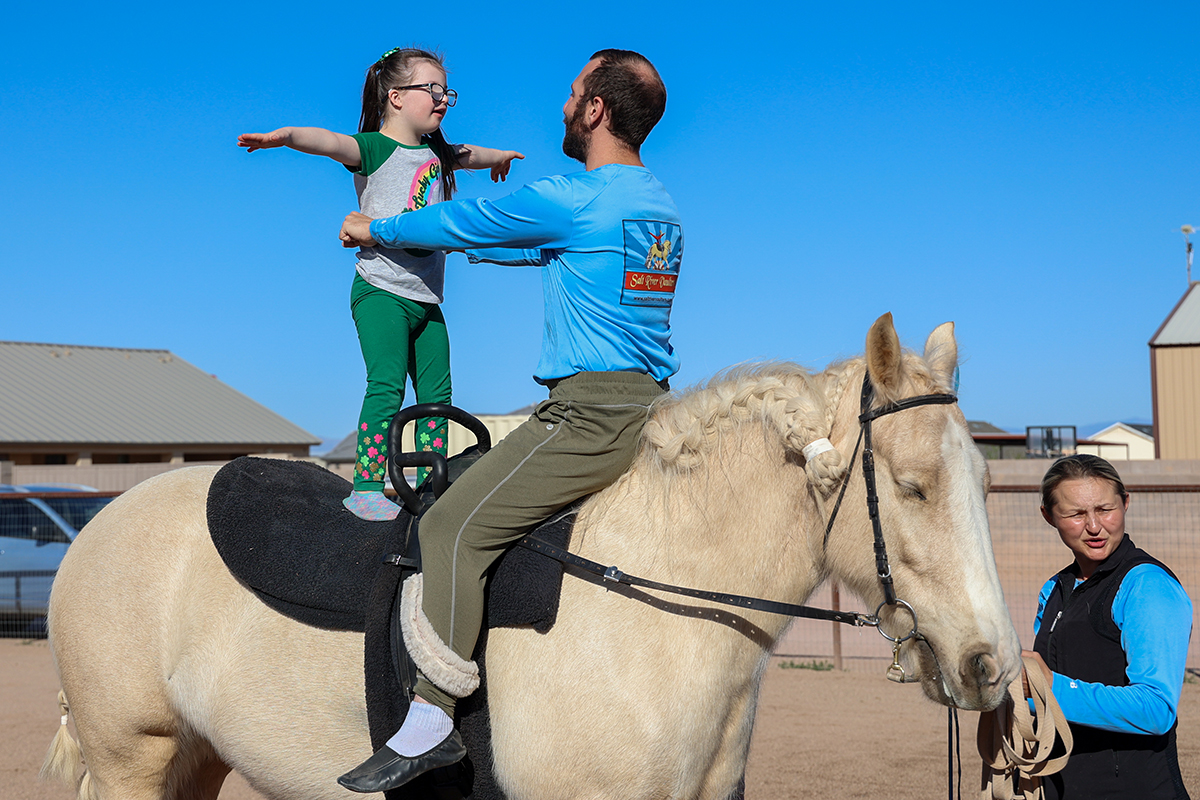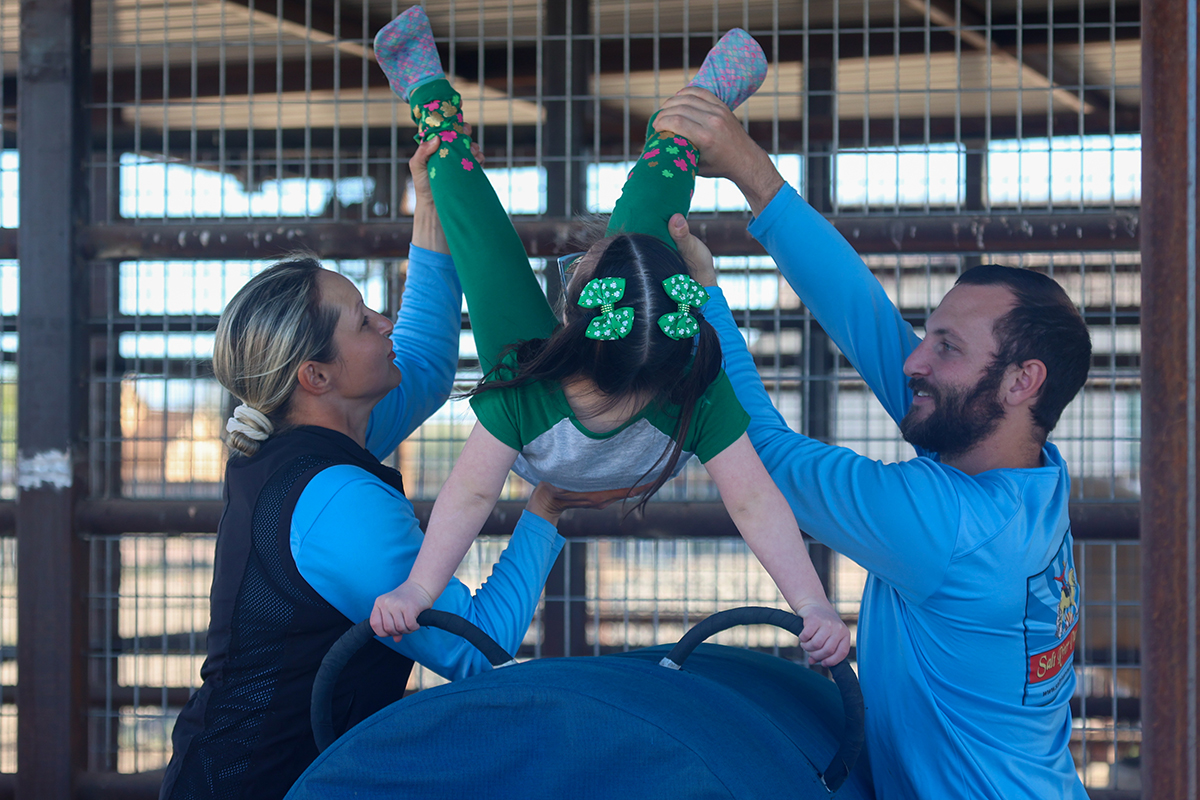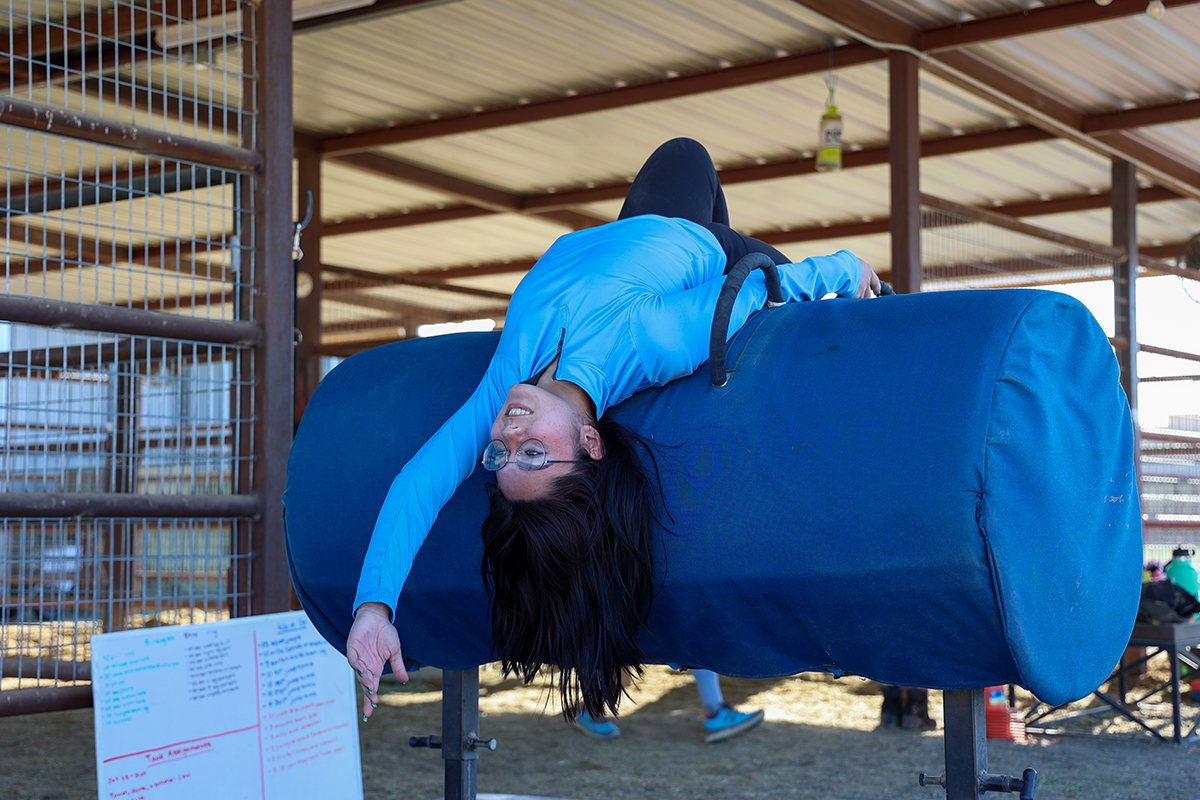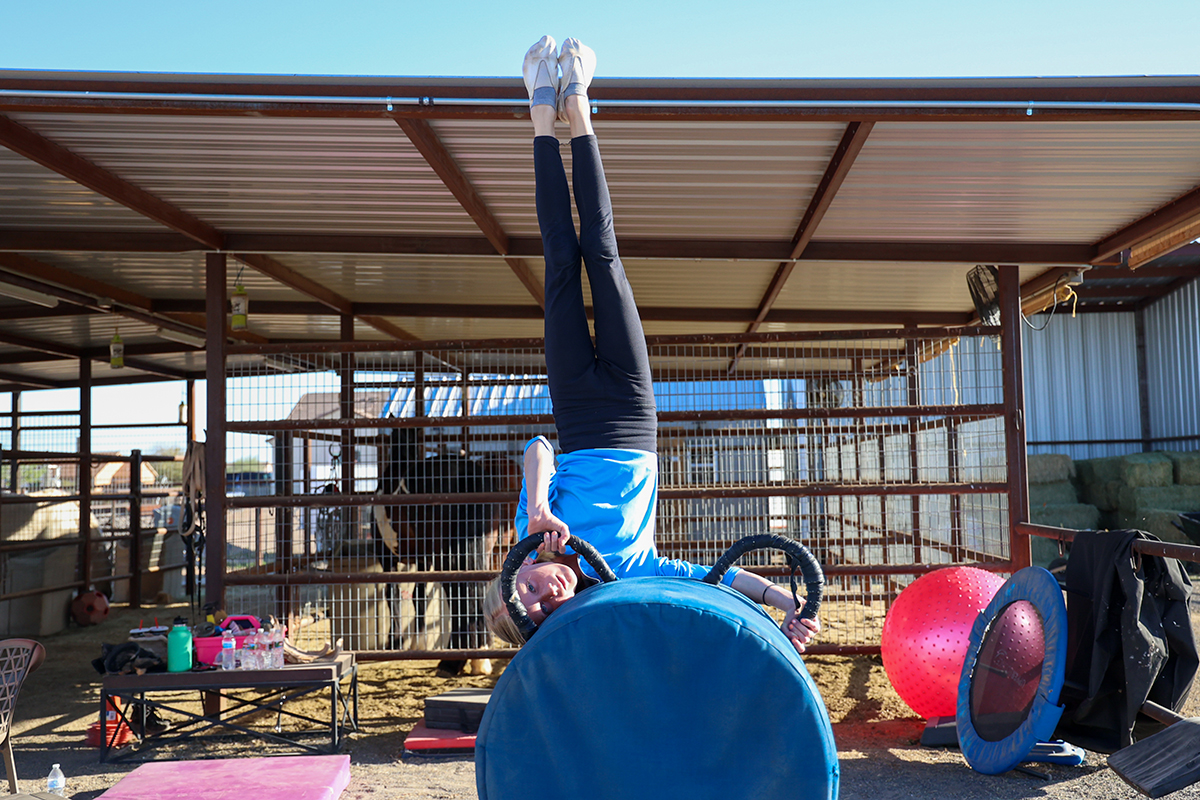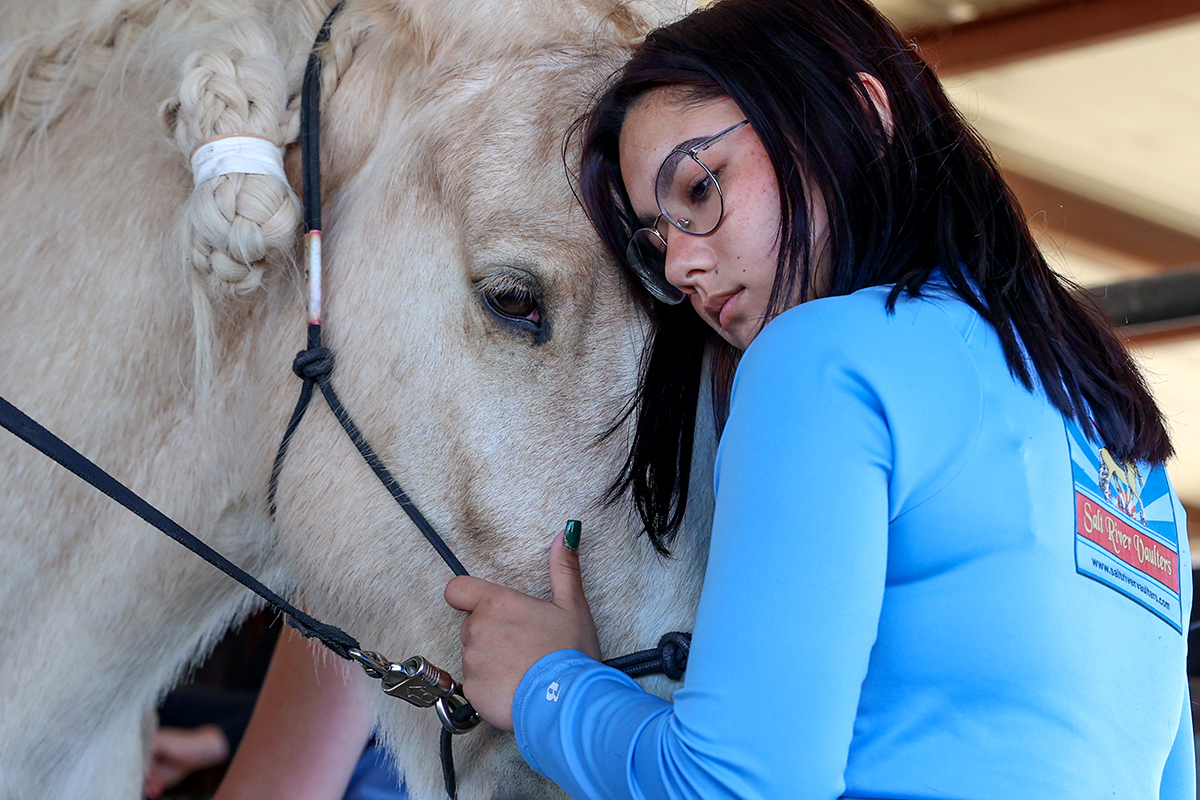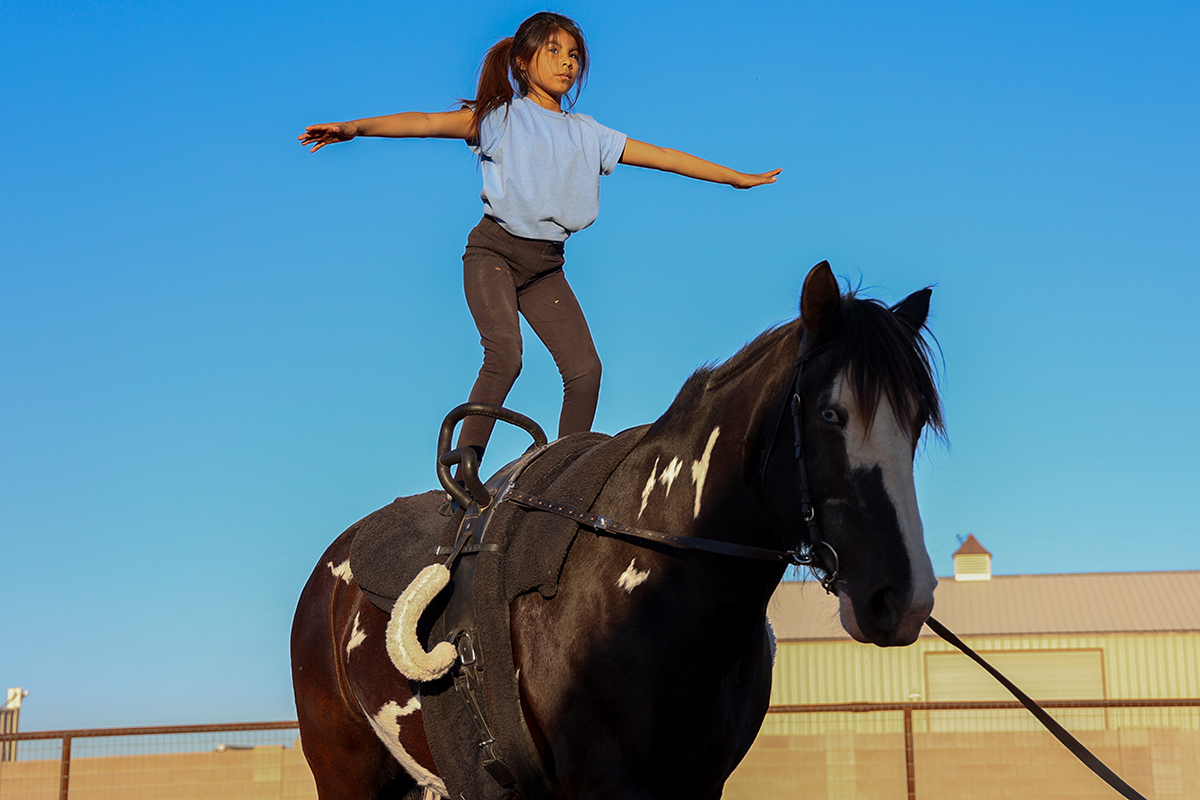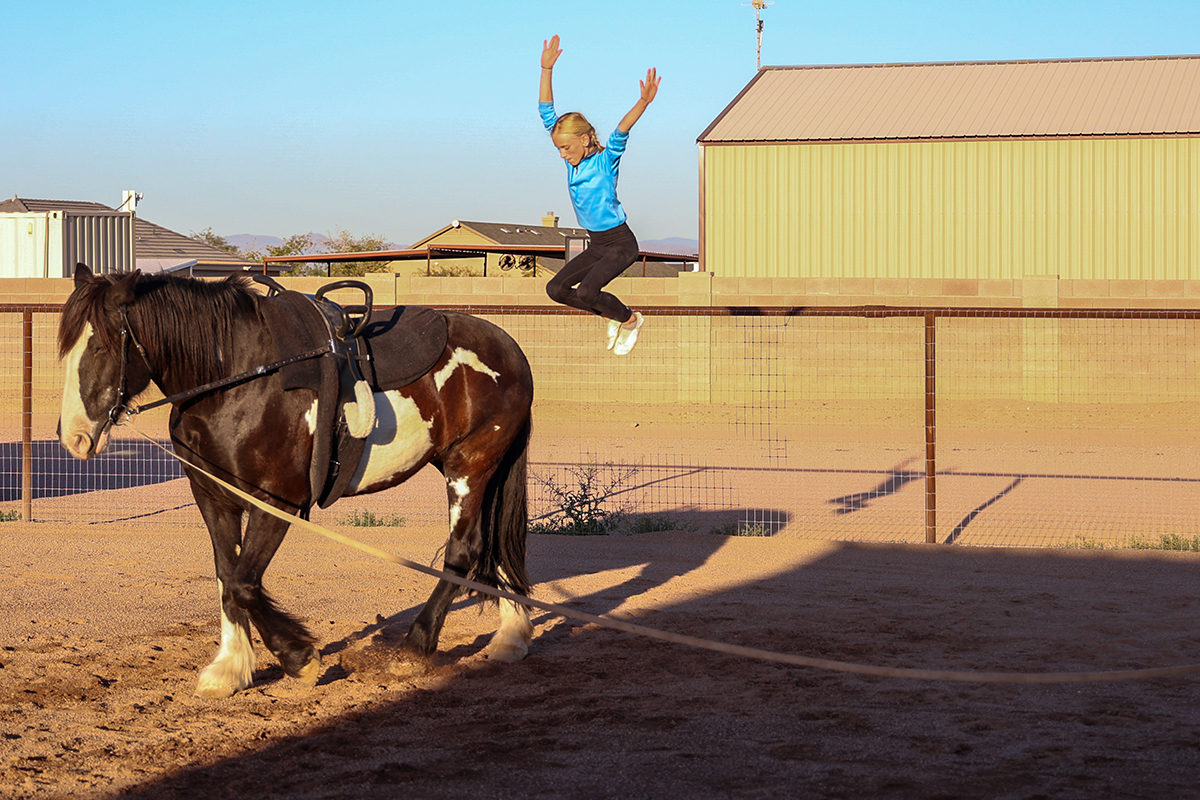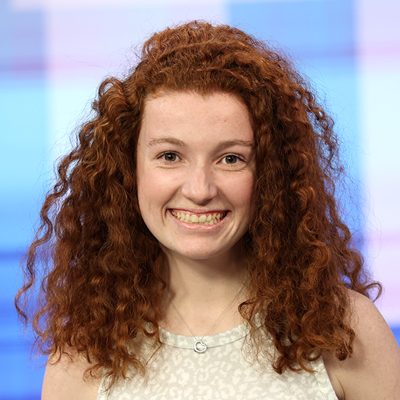Equestrian vaulting is “essentially gymnastics on horseback,” Sallus said, and competition includes compulsories and freestyle options. Salt River Vaulters start their beginners with compulsory exercises including vault-on, flag, stand and flank, moves that can help the athletes’ physical and mental growth. Pas de Deux features two people on a horse, and also includes aspects of gymnastics in the routine.
Athletes can participate in competition as an individual or with a team, and are scored on their flexibility and balance, as well as covering all areas of the horse. The horse is judged on its gait and quality, and each athlete must face on all four sides of the horse.
The United States held its first equestrian vaulting competition in 1969, according to US Equestrian, although the sport did not reach Arizona until Salt River Vaulters. When the couple returned from Russia, Sallus said he felt a void, realizing “there’s nothing here.”
After searching for a comfortable and safe area for the vaulters, Musina and Sallus, now married, found running their non-profit organization from their backyard in San Tan Valley was best, which also allowed them to expand the amount of classes.
“I love helping the kids with disabilities. I think it’s probably my favorite thing,” Sallus said. “They just have a joy with them that they bring to lessons, and just their smile.”
It’s not about making money, and it’s more than a business, Musina-Sallus said. “It’s about changing the lives of kids and adults and people in general because horses are changing lives,” she said.
“I like to share our horses, I like to share our place with people who really need it. Because a lot of people, they can’t find their place in life and they are really struggling. But I want them to know that they are always welcome here.”
